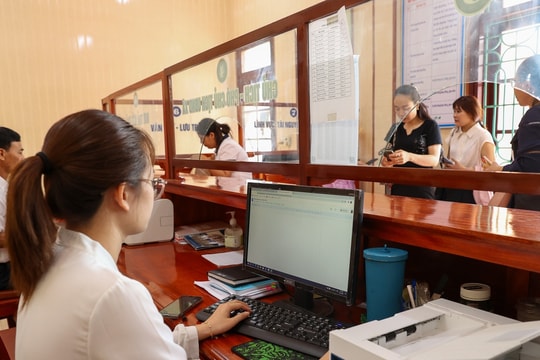Tighten control of assets and income of officials and civil servants by law
In 2017, only 3 cases of violations were detected out of more than 1.1 million people who declared their assets. This number does not reflect the reality.
The draft Law on Anti-Corruption (amended) recently submitted to the National Assembly Standing Committee has been divided into a separate chapter with many very new provisions, such as expanding the subjects of asset declaration; removing the annual declaration regulation, replacing it with the first declaration and supplementary declaration; regulations on a number of agencies and units controlling assets and income to manage declarations, monitor fluctuations and verify assets and income that are declared dishonestly and not explained reasonably.
Specifically, regarding the subjects of declaration, the Draft Law has major adjustments in the spirit of Resolution III of the Central Committee (10th tenure) that all party members, cadres and civil servants must declare their assets.
 |
| Declaring assets is one thing, but how to manage the declaration is the only way to prevent and detect corruption. |
However, according to the National Assembly's Judiciary Committee, supervision shows that the declaration in the past was still formal, ineffective, and did not control the assets and income of people with positions and powers.
Therefore, in the immediate future, we should maintain or narrow down the scope of subjects required to declare, focusing on subjects holding important positions at the central and local levels and in areas with high risk of corruption.
National Assembly Chairwoman Nguyen Thi Kim Ngan said: “This draft law expands the subjects of asset and income declaration. This expansion is in line with the spirit of Resolution III of the Central Committee and is also necessary. However, the expansion must also be considered to ensure feasibility, especially for those appointed to the civil service.”
Making a declaration is one thing, but how to manage the declaration is the only way to prevent and detect corruption. Meanwhile, the current law stipulates that the declaration is managed by the agency or organization where the declarant works.
This has led to the verification of assets and income of those required to declare being rarely carried out in the past 10 years.
To overcome this, the Draft Law on Anti-Corruption (amended) has stipulated the centralized management of asset and income declarations.
Accordingly, the agency or unit that centrally manages the declaration has a "relatively independent" legal status from the agency or unit that directly manages and employs the person with the declaration obligation.
This option helps to monitor, supervise and control assets and income of those who are required to declare more effectively, thereby promptly verifying to detect and handle corruption.
Deputy Chief Justice of the Supreme People's Procuracy Nguyen Hai Phong analyzed: "Currently, after declaring, we put it in a drawer, and only when we are appointed or if there is a problem will we check. Currently, the draft law has included in Article 40 the management agency to verify. But if we find that the verification is unclear, how will we handle the responsibility?"
According to Mr. Phong, if the current law is used to declare and then withdraw, there are two problems: Verification without professional skills will lead to false prestige for the declarant. And if the verification is correct but the agency does not have the authority to handle it, it is against the law.
Another problem is that if the declaration is not made public for people to monitor, the effectiveness of detecting and preventing corruption will not be high. In fact, most of the recent violations in asset declaration by officials and civil servants were discovered by public opinion and the press.
Therefore, the Draft Law on Anti-Corruption (amended) has stipulated that the declaration must be made public at the agency, organization or unit where the person regularly works.
Civil servants who are party members must publicly declare themselves at the party cell meeting where they are active.
Chairman of the National Assembly's Law Committee Nguyen Khac Dinh suggested: "Publicity is necessary, but how to publicize it, in what form to ensure transparency while maintaining the right to confidentiality of personal information as stipulated in the Constitution. It is necessary to publicize it, but in a way that anyone who needs it can go to a certain place to access and exploit it. If we print it out and post it now, the village party cell will not have the funds."
The recent public outcry and the discovery by authorities of cases of officials and civil servants declaring their assets dishonestly have once again shown that the mechanism for controlling the assets and income of officials and civil servants has many problems, even though this is considered an effective measure to prevent, detect and handle corruption.
Therefore, the Draft Law on Anti-Corruption (amended) this time is expected to continue to improve regulations on transparency and control of assets and income, contributing effectively to the prevention and fight against corruption./.
According to VOV



.jpg)




